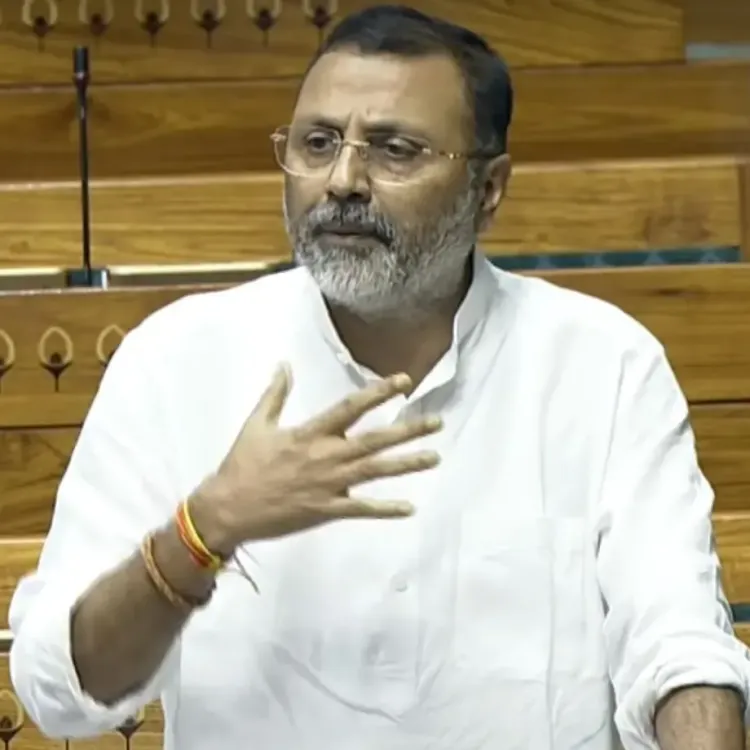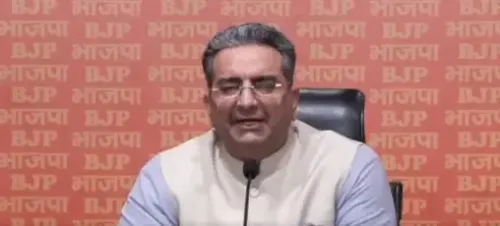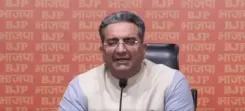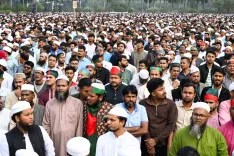1973 Delimitation Resulted in Increased Seats in Congress-Run States: Nishikant Dubey Critiques Opposition

Synopsis
Key Takeaways
- Nishikant Dubey criticizes the Opposition's inconsistent statements.
- 1973 delimitation led to more seats in Congress-ruled states.
- Concerns raised by DMK regarding population-based delimitation.
- Significant demographic shifts noted in Santhal Pargana.
- Call for exclusion of Bangladeshi intruders in future delimitation.
New Delhi, March 12 (NationPress) In the midst of rising tensions regarding delimitation in the southern states, BJP MP Nishikant Dubey criticized the Opposition for its contradictory statements and highlighted that it was the Congress-ruled states that experienced a surge in the number of seats post the 1973 delimitation exercise.
Addressing the Lok Sabha, the BJP MP from Godda in Jharkhand pointed out that there was no alteration in the status quo for states like Uttar Pradesh and Tamil Nadu.
“The number of seats increased in Congress-ruled states like Madhya Pradesh, Maharashtra, and Rajasthan among others. Additionally, it is the same political party that pushed for using population as a criterion for the delimitation process,” Nishikant Dubey asserted.
His remarks come in response to concerns raised by the Stalin-led DMK, which fears that a population-based delimitation will negatively impact Tamil Nadu’s representation in Parliament. Recently, during an all-party meeting in Chennai, DMK chief Stalin insisted that the 1971 Census should be the reference point for seat allocation through delimitation, voicing worries about the existing North-South population imbalance affecting their Lok Sabha seats.
The BJP MP also brought attention to the shifting demographics in his home state and condemned previous Congress administrations for ‘betraying’ Jharkhand. He noted that Jharkhand was the only state excluded from the nationwide delimitation exercise in 2008.
He further asserted that this exclusion was intentional.
“Had delimitation occurred in Jharkhand in 2008, the tribes of the Santhal Pargana region would have lost one Lok Sabha seat and three Assembly seats,” he stated, emphasizing that this was not just his opinion but corroborated by the findings of the Kuldeep Singh-led Delimitation Commission.
He highlighted a significant decrease in the tribal population in Santhal Pargana, which encompasses six districts: Godda, Deoghar, Dumka, Jamtara, Sahibganj, and Pakur, attributing this drastic change to Bangladeshi intruders and Rohingyas.
“In 1951, the tribal population constituted 45 percent of Santhal Pargana, but by the 2011 census, that number plummeted to just 28 percent,” he remarked.
“While the Muslim population has grown by over 4 percent nationally since independence, in Santhal Pargana, it has surged by more than 15 percent alone,” he noted.
The BJP MP asserted that Bangladeshi intruders have been infiltrating the nation and entering Jharkhand via Bengal and Bihar.
“Due to these intruders finding refuge in Jharkhand, the tribal population has faced severe challenges,” he stated, demanding that the next delimitation should exclude all Bangladeshi intruders.










